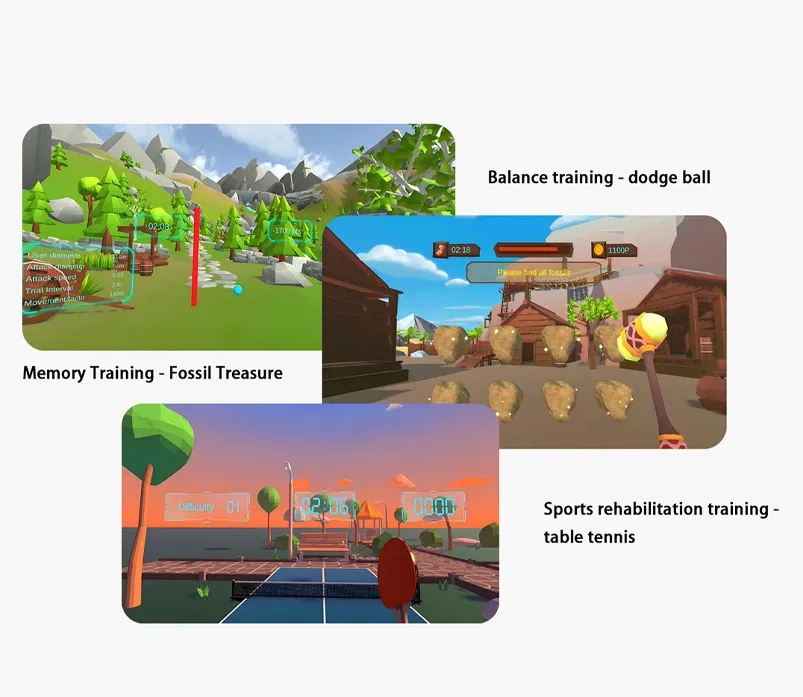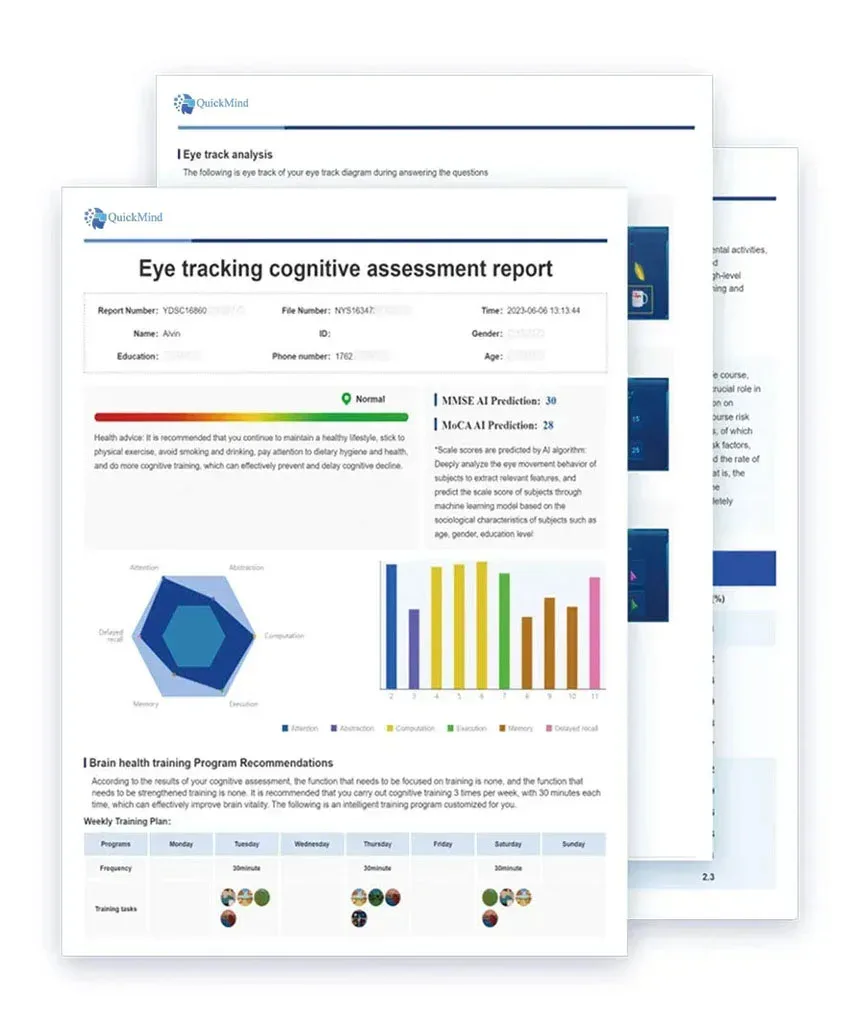precision neurological evaluation instruments targeted digital methods supporting cognitive health?

Developing examinations proposes that immersive digital environments modality can substantially augment the welfare of clients living with memory loss conditions. By relocating them to tranquil locations, VR delivers a special option for mental involvement, feelings management, and community engagement. Various studies have reported that VR therapy can lessen distress, stress, and depression in dementia persons affected while also elevating their cognition, heedfulness, and social skills.
- VR grants persons with dementia to rehash fond remembrances through dynamic animations.
- In addition, it can offer a risk-free and encouraging space for social contact, promoting a awareness of bond and fitting in.
- Investigators assert that VR therapy has the prospect to transform dementia support by contributing new and creative approaches to manage the complex obstacles faced by people experiencing this condition.
Electronic Health Solutions for Mental Boosting in Alzheimer's
Expanding cyber treatments are revealing effectiveness in the territory of intellectual growth for individuals struggling with Alzheimer's ailment. These software leverage software solutions to stimulate brain operation and supposedly lessen the evolution of the health issue. Motivating regimens, personalized evaluation, and intellectual training are some illustrations of strategies being explored in this developing sphere. While inquiries are advancing, digital therapeutics provide a complementary roadway for advancing the well-being of those affected by cognitive Alzheimer's illness.Novel VR Techniques for Alzheimer's Intervention
In relation to patients battling cognitive Alzheimer's ailment, the ongoing deterioration of mental capacity and mental competence can markedly hamper their capability to engage with the world around them. This impairing disorder often results in remoteness, upset, and a limited sense of self. Recent improvements in virtual reality technology introduce a state-of-the-art possibility to handle these difficulties by producing immersive experiences that can boost the brain and foster cognitive function.
Immersive virtual scenes tailored specifically for patients diagnosed with Alzheimer's can send them in known contexts, such as their early residence or a preferred green space, stirring positive memories and decreasing anxiety. Through interactive assignments, these virtual scapes can also engage cognitive abilities like remembrance, alertness, and solution finding.
The possible gains of virtual reality in Alzheimer's remediation are enormous. Early tests have proved encouraging results, with cases demonstrating improvements in cognitive ability, mood, and overall quality of life. As this mechanism moves forward, it holds the key to altering the way we approach Alzheimer's disease, offering a new pathway for intervention and strengthening.
Virtual Recollection Therapy for Alzheimer's
Reminiscence therapy is a traditional technique used to augment cognitive function and emotional well-being in individuals with Alzheimer's disease. This time-honored form of therapy involves engaging patients to recollect past experiences, often through interchange. However, a novel approach is emerging: VR-mediated reminiscence therapy.
This immersive system utilizes virtual reality headsets to bring patients in virtualized environments that invoke memories from their past. By recapturing these virtual scenes, individuals with Alzheimer's can connect with their past in a impactful way.
Innovative VR Techniques to Aid Memory and Cognition in Dementia
Virtual reality (VR) is emerging as a prospective method in the fight against dementia, making available trailblazing ways to improve memory and cognition. By constructing immersive environments, VR can guide individuals with dementia recall memories, participate in meaningful activities, and boost cognitive abilities. Studies have shown that VR interventions can effect marked improvements in memory recall, attention, and locational awareness. Moreover, VR provides a risk-free and positive space for individuals with dementia to express, reducing feelings of isolation and apprehension.
- What's more, VR can be customized to individual needs and preferences, helping broader levels of involvement.
- Despite the possibilities of VR, continued research is needed to fully understand its long-term benefits in dementia care.
Memory Revival and Social Renewal: VR's Role in Alzheimer's Community Engagement
Artificial virtual worlds is emerging as a advanced resource in the realm of neurodegenerative conditions. By developing immersive and dynamic environments, VR has the ability to spark memories, strengthen social interaction, and improve the overall quality of life for persons managing Alzheimer's. Among the most notable aspects of VR is its ability to convey users to beloved venues and experiences from their past. Whether it's a stroll in a childhood home or a depiction of a beloved holiday, these virtual explorations can invoke happy memories and bolster cognitive performance. Furthermore, VR can assist social interaction by joining individuals with others who share similar experiences. This can be particularly useful for people with Alzheimer's cognitive function reheablation who may deal with hardship with traditional social contact. By hosting a safe and interesting virtual space, VR can minimize feelings of isolation and loneliness, which are common among people living with Alzheimer's. Overall, VR holds immense power for remodeling the lives of persons with Alzheimer's by rekindling memories, recovering connections, and upgrading their quality of life. As technology persists in evolve, we can expect even more advanced applications of VR in the field of dementia care.Applying Cognitive Training: Employing VR Tools for Alzheimer's Care
Simulated immersive settings is rapidly emerging as a breakthrough tool in the realm of cognitive training, particularly for patients coping with Alzheimer's disease. By immersing patients in interactive and engaging virtual environments, VR-based interventions can boost cognitive functions such as memory, attention, and problem-solving. These games typically incorporate elements of storytelling, exploration, and social interaction, making the training process increasingly entertaining. Studies have shown that VR-based cognitive training can lead to important improvements in cognitive performance, likely delaying the progression of Alzheimer's symptoms. Moreover, VR provides a safe and controlled environment for patients to practice new skills and reinforce their confidence.
- Game-style methods in VR training can make it more interactive and appealing for subjects with intellectual impairments.
- VR simulations can offer realistic scenarios that provoke and motivate cognitive functions.
- Personalized VR experiences can cater to individualized wishes and procedures.
VR Platforms as Therapeutic Solutions for Dementia
Enthralling VR experiences offer a fresh and positive avenue for persons suffering dementia. These approaches can generate familiar environments, allowing those affected by cognitive decline to immerse in cherished memories and build a sense of solace. By easing the problems of dementia, VR realities have the possibility to elevate quality of life for both users and their guardians.
- Investigations indicate that VR approaches can favorably impact cognitive function, sentimental well-being, and even movement abilities in individuals with dementia.
- Moreover, VR offers a safe and protected environment for participation, reducing the risk of damage.
- Furthermore, VR can advance social bonds by allowing individuals with dementia to connect in augmented activities with others.
Game-Changing VR Solutions for Early Alzheimer's Assessment
Alzheimer's ailment presents a multifaceted difficulty, often being undiagnosed in its early stages. Though, virtual reality (VR) is showing promise as a cutting-edge tool for identifying the disease at an early stage. Through immersive virtual worlds, VR can evaluate cognitive capacity in ways that traditional methods are insufficient to. This capacity allows for rapid assistance strategies, potentially stalling disease progression and enhancing the quality of life for clients with Alzheimer's.
- VR systems measure cognitive responses such as memory and spatial awareness within controlled environments.
- Adaptive virtual reality tools motivate subjects to engage in neural stimulation efforts.
- VR worlds offer empathetic environments for interaction among those affected by Alzheimer's.
Facilitating Dementia Communication and Interaction Through VR
{In the realm of dementia care, innovative technologies are emerging to boost the lives of participants managing dementia. Virtual reality (VR) is one such mechanism that holds immense potential for fostering communication and interaction improvements in dementia via VR. By fabricating interactive simulated worlds, VR can energize cognitive function, reduce behavioral issues, and ultimately improve the overall well-being of people living with dementia.
VR experiences designed for neurodegenerative disease management can range from memory therapy sessions that transport users back to familiar places and times, to interactive games that promote social interaction and cognitive exercise. Furthermore, VR has the competence to connect participants in dementia care with associates, regardless of physical limitations, fostering a sense of community.
- VR can enable in reducing agitation and anxiety by providing a calming and engrossing environment.
- Studies have shown that VR interventions can lead to improvements in cognitive function, mood, and social interaction in clients experiencing cognitive decline.
- As technology evolves in advance, we can expect even more innovative and impactful
